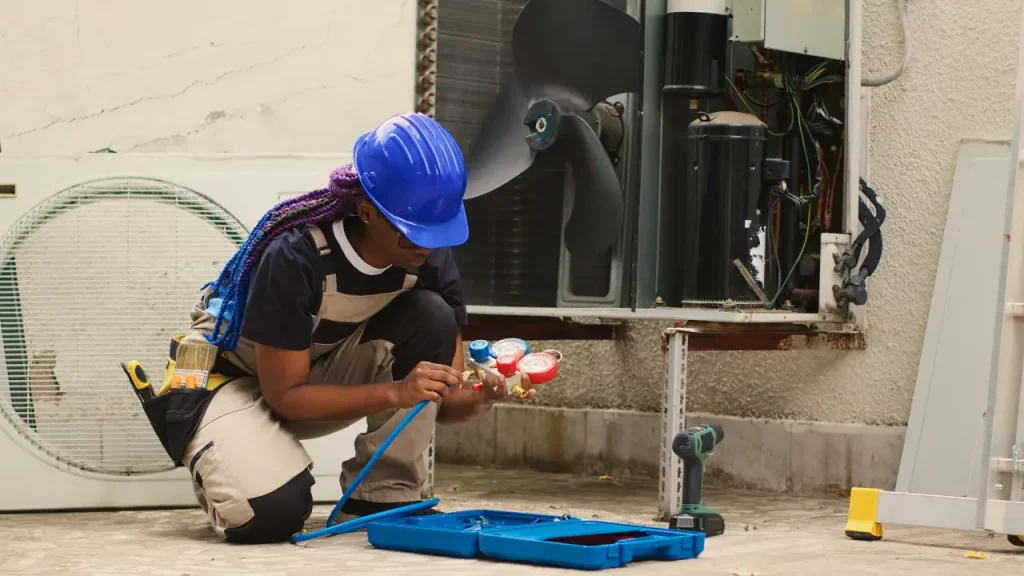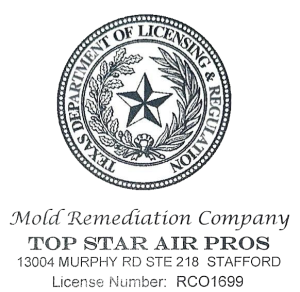There are many benefits to living in Houston, including the city’s thriving culture, mouthwatering food, and pleasant weather that makes outdoor activities possible all year round. However, the same humid weather that makes Houston unique can also create the perfect environment for mold to thrive—especially in your HVAC system. Mold doesn’t just cause unpleasant odors; it can severely impact your home’s air quality and your family’s health. Let’s explore how this issue arises and what you can do to protect your living space.
Understanding the Role of Your HVAC System
Your HVAC system is more than just a tool to cool or heat your home. It plays a crucial role in circulating air throughout your living spaces, ensuring comfort regardless of the season. But when mold takes hold within the system, every breath you take can carry harmful spores. Houston’s high humidity levels, often exacerbated during the spring and summer months, create the ideal conditions for mold to grow inside air ducts, vents, and coils.
The presence of mold can lead to an increase in allergens, musty odors, and even visible patches of mold around vents or inside the ductwork. For property owners in the Houston area, this makes routine HVAC cleaning an essential part of home maintenance.
How Mold Affects Indoor Air Quality
When mold infiltrates your HVAC system, it becomes a continuous source of airborne contaminants. Here’s how it impacts your indoor air quality:
1. Allergen Buildup
Mold spores are notorious allergens that can exacerbate respiratory conditions like asthma and allergies. For residents in Houston, where pollen levels can already be high during certain seasons, adding mold spores into the mix can spell trouble for anyone with sensitive respiratory systems.
2. Unpleasant Odors
Have you ever noticed a musty smell when turning on your air conditioning? That’s often a sign of mold in your HVAC system. These odors can permeate your entire home, making it difficult to enjoy a fresh and clean living environment.
3. Compromised Airflow
Mold growth can obstruct airflow within your HVAC system, reducing its efficiency. This not only impacts your comfort but also increases energy costs—a concern for many property owners across the Houston area.
Health Impacts of Mold on Your HVAC System
Mold exposure doesn’t just stop at discomfort; it can have serious health implications. Prolonged exposure to mold spores can lead to:
- Respiratory Problems: Symptoms like coughing, wheezing, and shortness of breath are common.
- Skin Irritation: Rashes and itching can occur in sensitive individuals.
- Sinus Issues: Chronic sinus infections and headaches may result from breathing mold-contaminated air.
- Weakened Immune Response: Prolonged exposure can strain your immune system, especially in children and the elderly.
Given Houston’s climate, addressing mold issues proactively is vital to maintaining a healthy home.
The Importance of Routine HVAC Cleaning
Preventing mold growth in your HVAC system requires more than just a surface cleaning. Comprehensive HVAC cleaning ensures that every component—from the ducts to the coils—is free from mold and debris. Here are the benefits of regular cleaning:
- Improved Air Quality: Professional cleaning removes allergens, mold spores, and dust that can circulate through your home.
- Enhanced System Efficiency: Clean components allow your system to work more efficiently, reducing energy bills.
- Extended System Lifespan: Preventing mold and blockages reduces wear and tear on your HVAC system, saving you from costly repairs or replacements.
For homeowners in Houston, where high humidity is a constant, scheduling regular HVAC maintenance is as essential as any other home upkeep task.
How to Prevent Mold Growth in Your HVAC System
In addition to scheduling regular professional HVAC cleaning, there are steps you can take to reduce the risk of mold growth:
1. Control Humidity Levels
Invest in a dehumidifier to keep indoor humidity below 60%, particularly during Houston’s muggy months.
2. Replace Air Filters Regularly
Dirty filters can restrict airflow and create conditions conducive to mold growth. Replace filters every 1-3 months, or as recommended by your HVAC manufacturer.
3. Inspect and Seal Ducts
Leaky ducts can introduce moisture into the system. Ensure all ductwork is properly sealed to minimize the risk of mold.
4. Schedule Annual Inspections
A professional HVAC inspection can identify potential problems early, ensuring your system remains mold-free and efficient.
Trust Top Star Air Pros for Your HVAC Needs
Addressing mold issues in your HVAC system requires expertise and the right equipment. Across the Houston area, Top Star Air Pros has built a reputation for delivering high-quality HVAC cleaning services. We understand the unique challenges posed by Houston’s climate and are committed to ensuring your home stays comfortable and healthy year-round. Don’t wait until mold becomes a problem—contact Top Star Air Pros today to schedule your next HVAC service.




